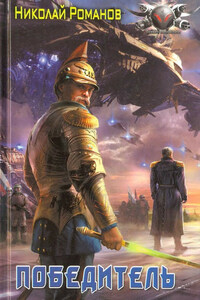On the third day of August, 1870, I left Paris in search of John Buckhurst.
On the 4th of August I lost all traces of Mr. Buckhurst near the frontier, in the village of Morsbronn. The remainder of the day I spent in acquiring that “general information” so dear to the officials in Paris whose flimsy systems of intelligence had already begun to break down.
On August 5th, about eight o’clock in the morning, the military telegraph instrument in the operator’s room over the temporary barracks of the Third Hussars clicked out the call for urgency, not the usual military signal, but a secret sequence understood only by certain officers of the Imperial Military Police. The operator on duty therefore stepped into my room and waited while I took his place at the wire.
I had been using the code-book that morning, preparing despatches for Paris, and now, at the first series of significant clicks, I dropped my left middle finger on the key and repeated the signal to Paris, using the required variations. Then I rose, locked the door, and returned to the table.
“Who is this?” came over the wire in the secret code; and I answered at once: “Inspector of Foreign Division, Imperial Military Police, on duty at Morsbronn, Alsace.”
After considerable delay the next message arrived in the Morse code: “Is that you, Scarlett?”
And I replied: “Yes. Who are you? Why do you not use the code? Repeat the code signal and your number.”
The signal was repeated, then came the message: “This is the Tuileries. You have my authority to use the Morse code for the sake of brevity. Do you understand? I am Jarras. The Empress is here.” Instantly reassured by the message from Colonel Jarras, head of the bureau to which I was attached, I answered that I understood. Then the telegrams began to fly, all in the Morse code:
Jarras. “Have you caught Buckhurst?”
I. “No.”
Jarras. “How did he get away?”
I. “There’s confusion enough on the frontier to cover the escape of a hundred thieves.”
Jarras. “Your reply alarms the Empress. State briefly the present position of the First Corps.”
I. “The First Corps still occupies the heights in a straight line about seven kilometres long; the plateau is covered with vineyards. Two small rivers are in front of us; the Vosges are behind us; the right flank pivots on Morsbronn, the left on Neehwiller; the centre covers Wörth. We have had forty-eight hours’ heavy rain.”
Jarras. “Where are the Germans?”
I. “Precise information not obtainable at headquarters of the First Corps.”
Jarras. “Does the Marshal not know where the Germans are?”
I. “Marshal MacMahon does not know definitely.”
Jarras. “Does the Marshal not employ his cavalry? Where are they?”
I. “Septeuil’s cavalry of the second division lie between Elsasshausen and the Grosserwald; Michel’s brigade of heavy cavalry camps at Eberbach; the second division of cavalry of the reserve, General Vicomte de Bonnemain, should arrive to-night and go into bivouac between Reichshofen and the Grosserwald.”
There was a long pause; I lighted a cigar and waited. After a while the instrument began again:
Jarras. “The Empress desires to know where the château called La Trappe is.”
I. “La Trappe is about four kilometres from Morsbronn, near the hamlet of Trois-Feuilles.”
Jarras. “It is understood that Madame de Vassart’s group of socialists are about to leave La Trappe for Paradise, in Morbihan. It is possible that Buckhurst has taken refuge among them. Therefore you will proceed to La Trappe. Do you understand?”
I. “Perfectly.”
Jarras. “If Buckhurst is found you will bring him to Paris at once. Shoot him if he resists arrest. If the community at La Trappe has not been warned of a possible visit from us, you will find and arrest the following individuals:














